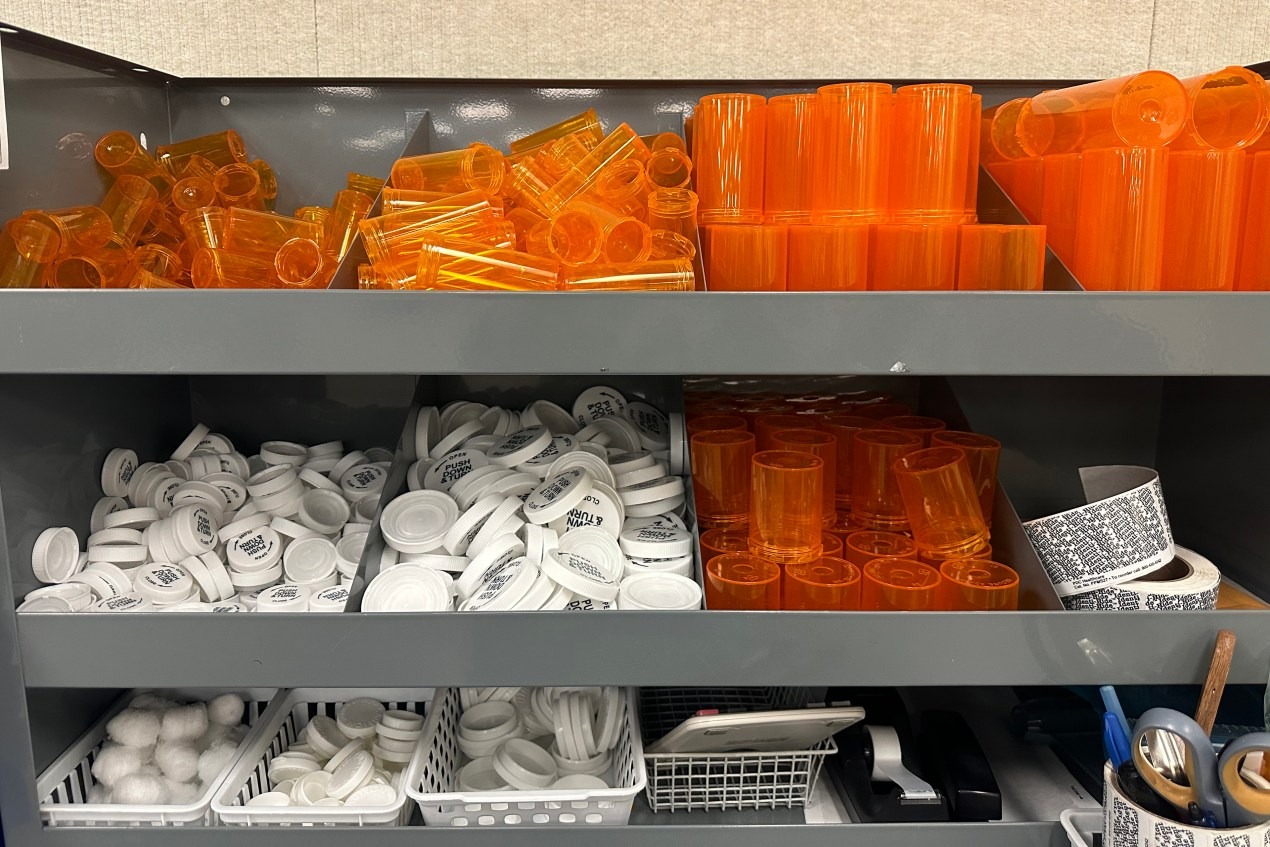
A Hunger Games-like arena, but for plants.
That’s what you’ll find at Colorado State University’s Trial Gardens in Fort Collins. Each season, plant breeders from around the world submit their freshest varieties for testing, where plants endure the state’s unrelenting weather, from hail to temperature swings and more, all in the name of survival and beauty.
“We are at the mercy of the skies,” said Chad Miller, the director of the Trial Gardens. And he’s not being a drama queen. A single, mean hailstorm could do wonders here (not in a good way, though).
“It could just take a matter of 10 minutes and this could be destroyed.”
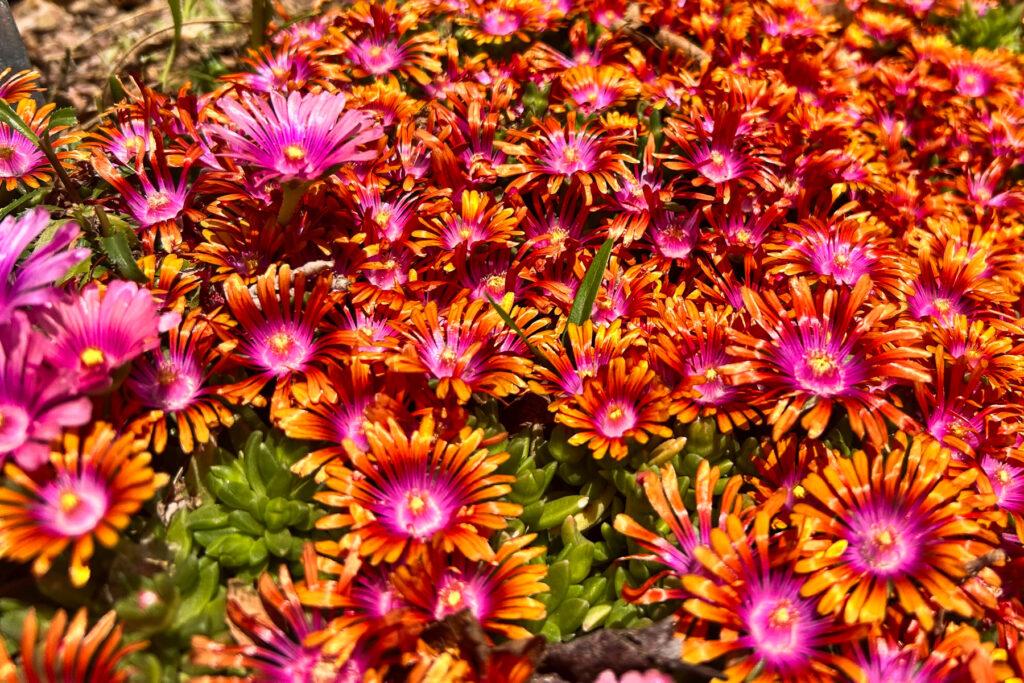
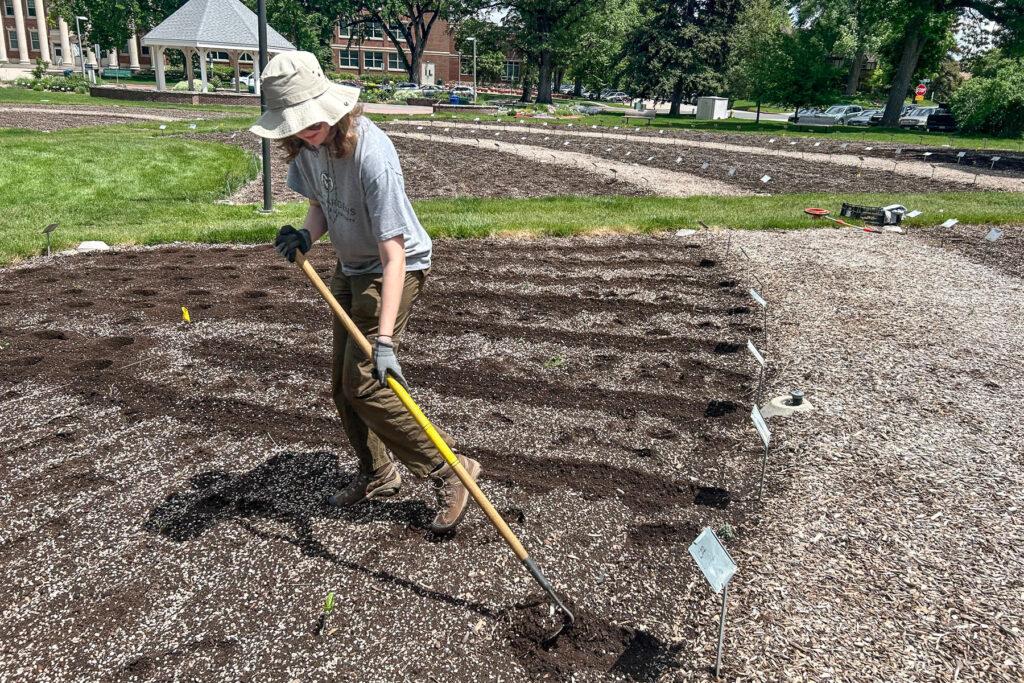
That’s what part of the appeal is for scientists, breeders and even the average gardener.
CPR News visited the three-acre site in late May as volunteers and staff were hard at work prepping the bare grounds.
Each spring, the garden receives about 1,300 plants, both annuals and perennials, which will be planted in the ground and containers. The perennials will stay for three full years, including two Colorado winters.
All of these plants are submitted by breeding companies hoping to break into the market with something new. Miller’s team collects detailed data on how the plants grow, bloom and survive over time.
Some of those details come from casual visitors who can vote on their favorites.
Yep, there’s a ballot box, QR codes, even a “public evaluation day” in August where people walk around sticking flags in the ground next to their most-loved plants.
“We encourage our visitors to help us identify what’s their favorite plant,” Miller said. “We keep a tally over the summer... and we report that back to the growers and the breeders.”
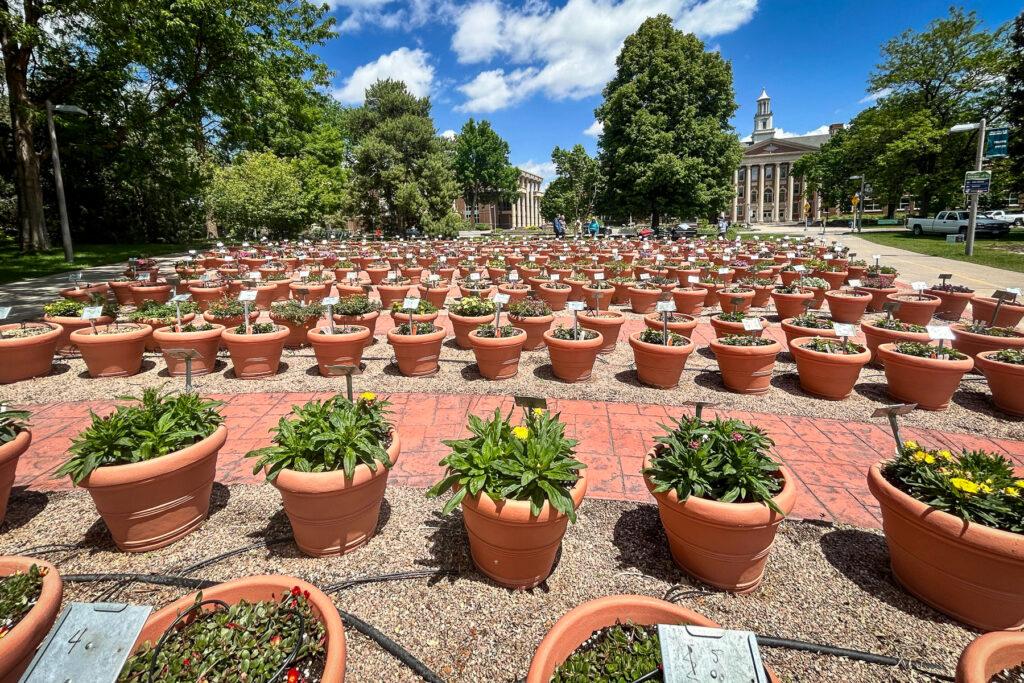
It’s not a popularity contest alone.
The growers are watching closely, too, sometimes visiting the gardens unannounced to check in like secret auditors, Miller said.
“We take a lot of data and we share that data,” Miller explained. “They’ll look at our data and that helps them make informed decisions.”
Sometimes the results mean heartbreak for home gardeners.
You might fall in love with a flower here, like Summer Haze White heuchera – a perennial known for its airy blooms and potential as a cut flower. But it may never be seen again due to its performance during the test.
“It’s just a little shorter, a little less vigorous” than the others in its series, Miller pointed out, comparing it to the Summer Haze Dark Pink and Light Pink varieties planted in neat rows right alongside it. “They may deem that as not good enough.”
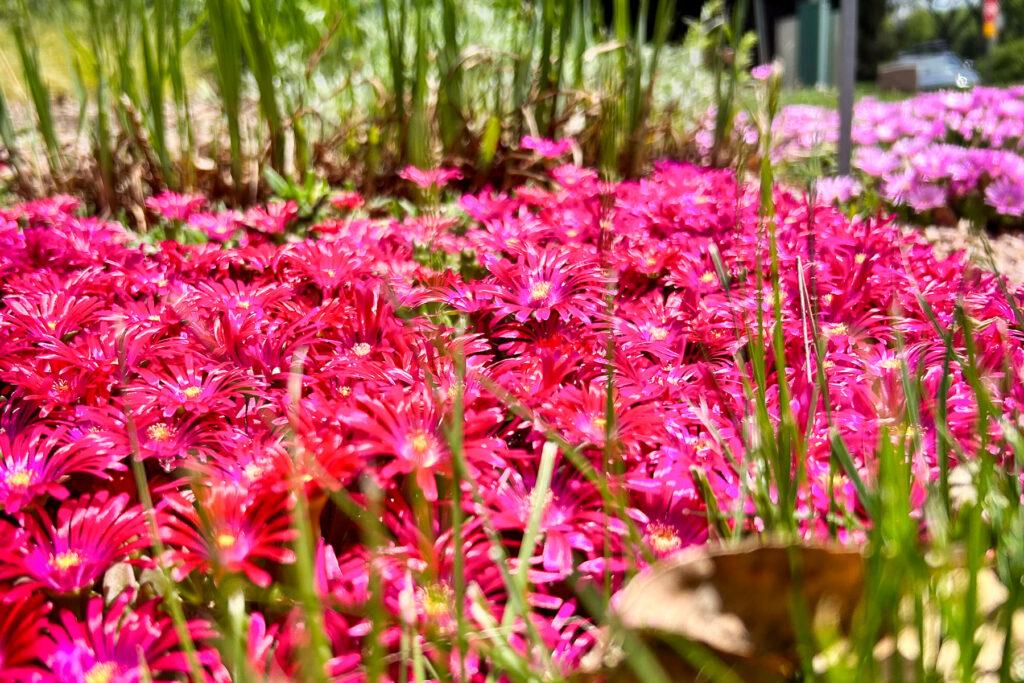
Other plants go on to garden fame. Miller said one of the best-known CSU grads is a tidy ornamental grass called Blonde Ambition (yes, that’s a Madonna reference).
Miller is relatively new to his role, but he’s got ideas for the future: more digital access, virtual walk-throughs and maybe even a way to explain some of the plant names that make him laugh.
“There definitely has to be a backstory to some of the names,” he said. “If I can put that on a QR code... what’s in a name, right?”
The gardens are free and open to the public.
And even if you never make it to Fort Collins, chances are good that your flower beds – or your garden center wishlist – have been shaped by what happens here.
View CSU's Top Performing Plants Below:
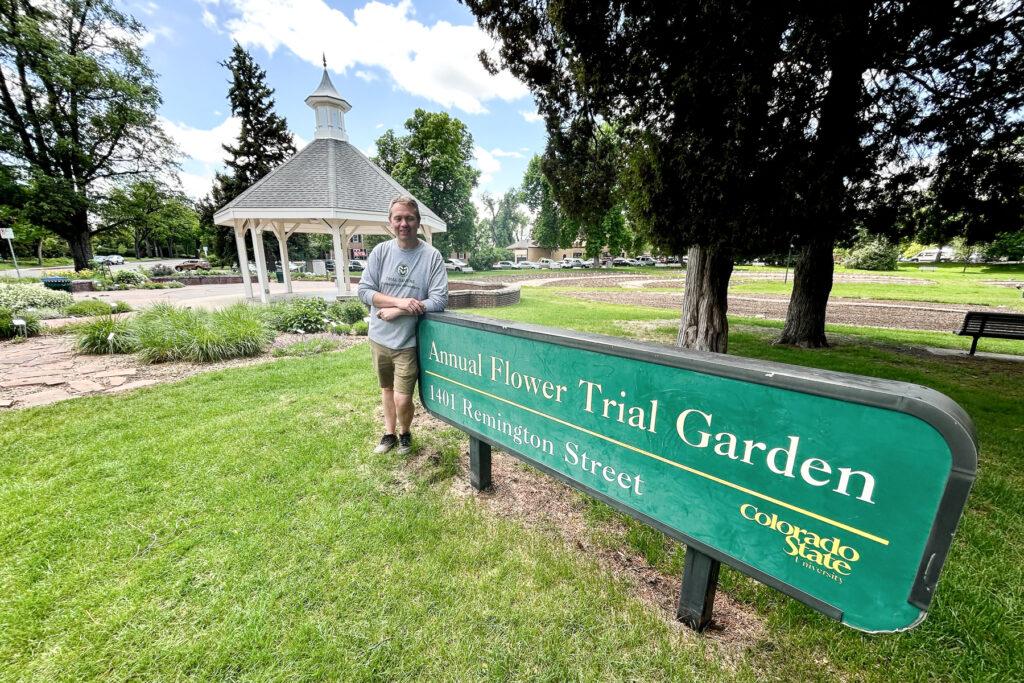
- Spring gardening in Colorado: From sustainable lawn alternatives to pest control, how to make the most of your spring garden
- New seeds program creates chance to grow vegetables and build community through urban gardens
- A list of the best trees to plant on the Front Range as recommended by experts
- At this Larkspur greenhouse, families and friendships flourish with each summer sale
- From summer heat and shading your soil, to pests and noxious weeds, gardening expert helps weather the growing season


